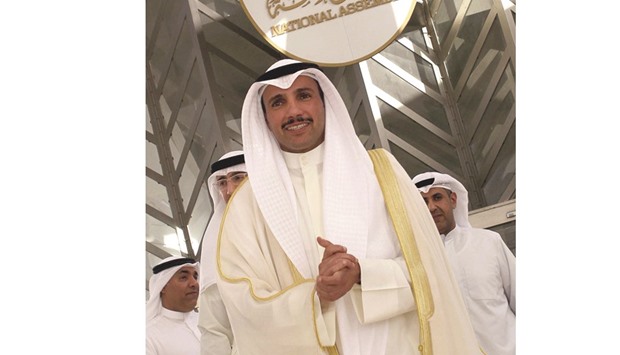Kuwait’s emir dissolved parliament yesterday following tensions between lawmakers and the government over a petrol price hike, setting the stage for early elections within two months.
The surprise move came after lawmakers in the emirate strongly opposed the government’s unilateral hike of petrol prices – one of a host of austerity measures following a sharp drop in crude revenues.
Sheikh Sabah al-Ahmad al-Sabah’s decree made no direct mention of the tensions, instead referring to “delicate regional developments” and “the dangers of security challenges”.
“It became necessary to go back to the people to elect their representatives and contribute to confronting those challenges,” the decree said.
The move was based on a recommendation from the cabinet, which held an emergency meeting earlier yesterday to discuss the political situation.
It came less than 24 hours after parliament speaker Marzouk al-Ghanem called for snap elections, following three requests from lawmakers to grill ministers over the petrol price hike and alleged financial and administrative violations.
No date was set for fresh polls but under the Kuwaiti constitution early elections must be held within two months of the dissolution of the house.
Kuwaiti political analyst Saleh al-Saeedi said the dissolution came as a surprise given the current parliament’s outspoken support for most government measures.
“This has been the most co-operative parliament with the government,” Saeedi said.
MP Saleh Ashour even offered congratulations to the Kuwaiti people on the dissolution.
“I congratulate the Kuwaiti people for dissolving the national assembly and hope the next assembly will represent their aspirations,” Ashour said.
The 50-member parliament was scheduled to start the final year of its four-year term tomorrow.
Kuwait enjoyed relative stability in the past three years following almost seven years of political turmoil due to disputes between lawmakers, mainly from the opposition, and the government.
Almost all opposition groups boycotted the previous polls in protest against the government’s unilateral change of the voting system.

Kuwaiti National Assembly speaker Marzouq al-Ghanim leaves the assembly building in Kuwait City yesterday after Kuwait’s Emir, Sheikh Sabah al-Ahmad al-Sabah, dissolved parliament.
